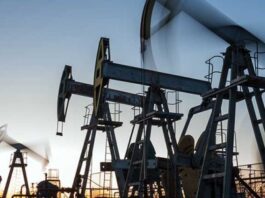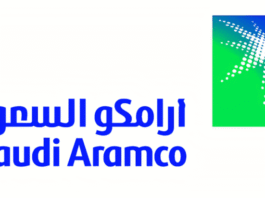FG projects 600,000-barrel daily crude increase from fresh investments
The Nigerian Upstream Petroleum Regulatory Commission (NUPRC), has projected an increase of approximately 600,000 barrels per day in Nigeria’s crude oil production, driven by a surge in new investments in the upstream sector.
It stated that the additional output would come from the 28 Field Development Plans approved so far in 2025, which are expected to deliver about 600,000 barrels of crude oil and over two billion standard cubic feet of gas per day.
If realised, this would raise Nigeria’s daily crude production to about 1.89 million barrels, up from 1.39 million barrels per day recorded in September.
The Commission Chief Executive of the NUPRC, Gbenga Komolafe, gave the projections at the ongoing 2025 World Energies Summit convened by Frontier Energy Network in London.
A statement signed by the Head of Media and Strategic Communication, Eniola Akinkuotu, on Wednesday, quoting Komolafe, read, “In 2025 alone, 28 new Field Development Plans have already been approved, unlocking an additional 1.4 billion barrels of oil and 5.4 trillion cubic feet of gas.
“These projects are expected to add nearly 600,000 barrels of oil per day and more than two billion standard cubic feet of gas per day, supported by $18.2 bn in committed CAPEX. Together, these outcomes demonstrate that Nigeria’s upstream sector is not only on a growth trajectory but is also attracting the scale of investment needed to sustain its role as a premier global energy hub.”
The NUPRC boss noted that the President Bola Tinubu-led government and the Commission are responding with bold reforms and strategic actions to turn challenges into opportunities amidst global pressures for energy transition.
He therefore asked investors to seize the vast opportunities ahead of the launch of Nigeria’s next Block Licensing Round.
Highlighting the dividends of bold reforms, the CCE disclosed that the Commission has conducted licensing initiatives such as the 2022 Petroleum Prospecting Licences, the Mini-Bid Round for deep offshore blocks, and the landmark 2024 Licensing Round, which was adjudged transparent by operators and stakeholders, including the Nigeria Extractive Industries Transparency Initiative.
“Beyond the successes of our data acquisition campaigns and licensing rounds, every key metric on our performance dashboard reflects widening access and exceptional investor participation. Rig activity, for instance, has surged from just 8 in 2021 to 70 today, out of which 41 are drilling on site. Production has also risen significantly, from 1.46 million barrels per day in October 2024 to around 1.8 million barrels per day.
“Major final investment decisions, such as the $5 billion Bonga North and $500m Ubeta Gas Project, underscore renewed long-term investor confidence, with several more expected soon,” the CCE disclosed.
The CCE maintained that energy transition is a matter of energy security for the continent and Nigeria. This, he noted, has led to bold reforms aligned with the country’s transition strategy, which is the Decade of Gas.
He also highlighted how the Petroleum Industry Act, 2021, reshaped and brought clarity to the Nigerian oil and gas industry.
According to him, the PIA ushered in fiscal reforms and investor-centric policies anchored in transparency, ethical governance, clarity, predictability, sustainability, competitiveness, and investor confidence.
The NUPRC, established by the PIA, has issued 24 regulations benchmarked against global standards to restore confidence and stability, he noted.
Komolafe reiterated that the three Executive Orders issued by President Tinubu in 2024 have further incentivised Nigeria’s oil and gas sector.
As part of moves toward a just transition, Komolafe said Nigeria is embedding climate responsibility at the heart of its upstream reforms through a robust Decarbonisation Framework that integrates MRV systems, carbon capture and storage, and access to carbon markets.
The NUPRC boss further stated that the administration of the Host Communities provisions of the PIA has strengthened trust and cooperation, enabling companies to operate more effectively.
According to him, these outcomes demonstrate that Nigeria’s upstream sector is not only on a growth trajectory but is also attracting the scale of investment needed to sustain its role as a premier global energy hub.
He added that investors now have unprecedented access to both mature and frontier basins, which have been incentivised with favourable fiscal terms.
“As we prepare to launch Nigeria’s next Block Licensing Round, I extend a warm invitation to our local and global partners to join us in this journey,” he added.
The PUNCH reports that investments in Nigeria’s oil sector have risen significantly, a development attributed to the reforms and policy stability introduced by the Tinubu administration.
On Tuesday, Nigeria’s gas sector received a major boost as global energy giant Shell announced a $2bn investment in the development of the HI Field, a shallow offshore non-associated gas project located in Oil Mining Lease 144.
The development marks Nigeria’s second major gas investment in 18 months and underscores renewed global confidence in the country’s oil and gas industry under President Bola Tinubu’s administration.
According to the government, the new project brings total upstream investment commitments through Final Investment Decisions to over $8bn since Tinubu assumed office in 2023.







